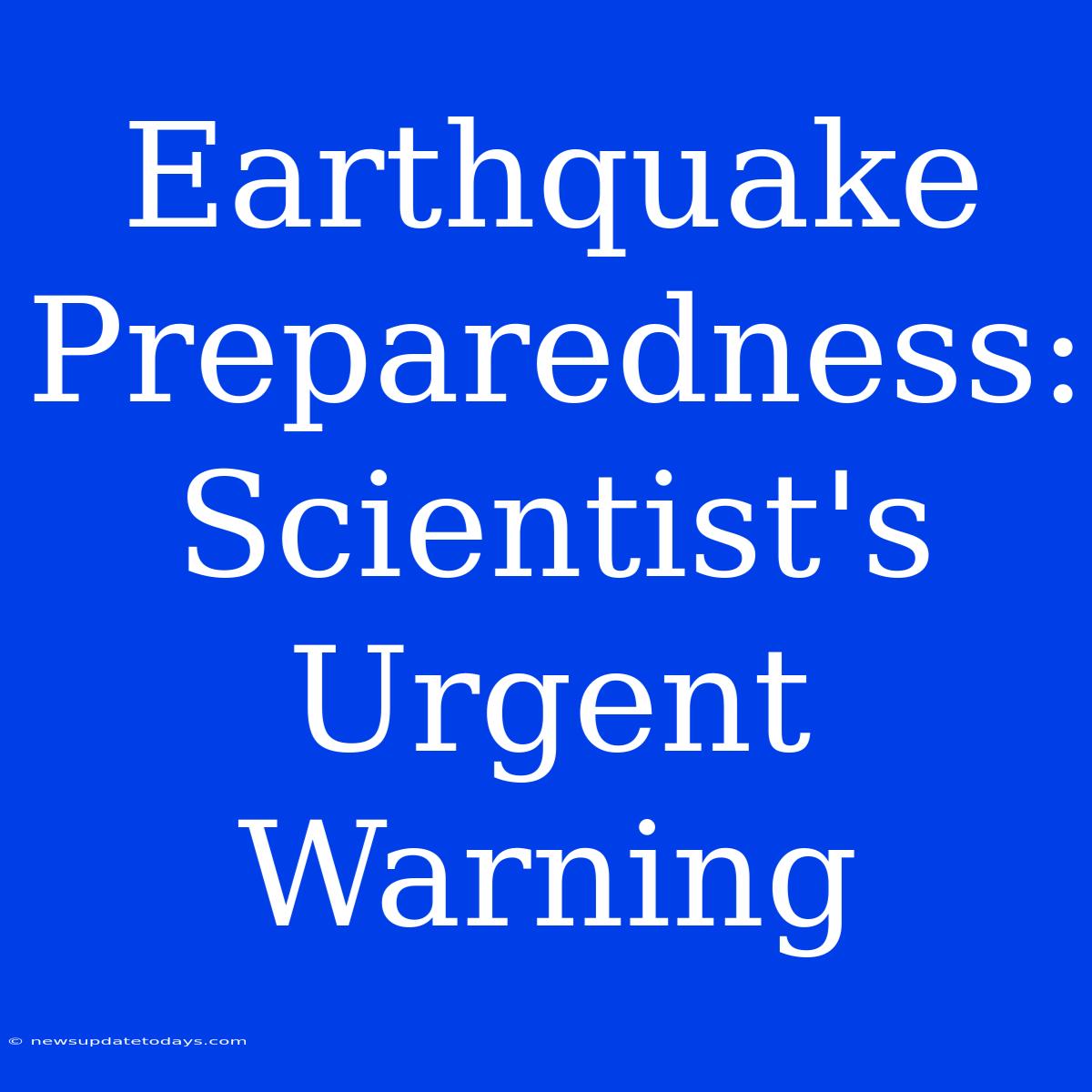Earthquake Preparedness: A Scientist's Urgent Warning
Earthquakes, unpredictable and devastating, are a stark reminder of nature's power. While we can't prevent them, we can significantly mitigate their impact through proactive preparedness. This isn't just about survival; it's about minimizing suffering and ensuring a quicker recovery. Leading seismologists are issuing an urgent warning: being prepared is not just advisable, it's essential.
Understanding the Urgency
The Earth's tectonic plates are constantly shifting, creating seismic activity. While predicting the exact time and location of a major earthquake remains elusive, scientific advancements offer increasingly sophisticated forecasting models, highlighting areas of increased risk. This heightened awareness underscores the urgency of preparedness. The potential for catastrophic damage and loss of life necessitates immediate action.
The Scientist's Key Recommendations:
Scientists emphasize a multi-pronged approach to earthquake preparedness:
-
Develop a Family Emergency Plan: This isn't just a document; it's a practiced strategy. Identify meeting points, establish communication channels (consider a designated out-of-state contact), and create a detailed inventory of essential supplies. Regularly rehearse your plan. Practice makes perfect, especially when dealing with emergency situations.
-
Secure Your Home: This includes identifying and securing potential hazards within your home. Secure heavy objects to walls, reinforce shelving, and ensure that gas and electrical lines are properly secured. Regularly inspect your home for structural weaknesses. A proactive approach to home safety can prevent significant damage and injury.
-
Assemble an Emergency Kit: Your kit should include non-perishable food, water (at least one gallon per person per day for several days), a first-aid kit, a flashlight, batteries, a radio, and copies of important documents. Consider adding blankets, medications, and personal hygiene items. Ensure your kit is readily accessible and regularly updated.
-
Learn Basic First Aid and CPR: Knowing how to provide basic first aid and CPR can be invaluable in the aftermath of an earthquake, potentially saving lives. Take a course and refresh your skills regularly. Life-saving skills empower individuals and communities.
-
Stay Informed: Monitor local news and emergency alerts for warnings and instructions. Familiarize yourself with your community's evacuation routes and designated safe zones. Understanding local resources and procedures is crucial. Information empowers informed decision-making during emergencies.
Beyond the Basics: Proactive Steps for Enhanced Preparedness
Beyond the fundamental steps, consider these crucial additions to your earthquake preparedness plan:
- Earthquake Insurance: Protecting your financial future is a vital part of preparedness. Consider earthquake insurance to cover potential property damage.
- Community Involvement: Participate in community preparedness initiatives. This creates a stronger, more resilient community capable of supporting each other during emergencies.
- Regularly Review and Update Your Plan: Life changes; your preparedness plan should adapt accordingly. Review and update your plan at least annually or after any significant life changes.
The urgent warning from scientists isn't about inducing panic; it's a call to action. By taking proactive steps and developing a comprehensive earthquake preparedness plan, you can significantly reduce your risk and protect yourself and your loved ones. Don't wait for a disaster to strike. Prepare today.

